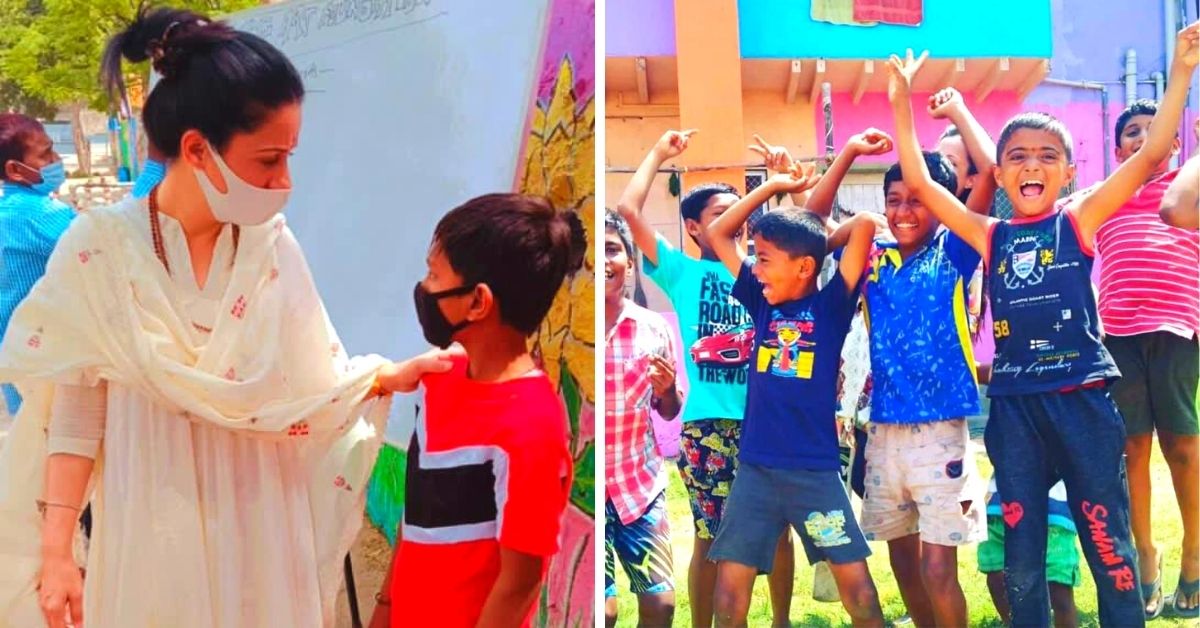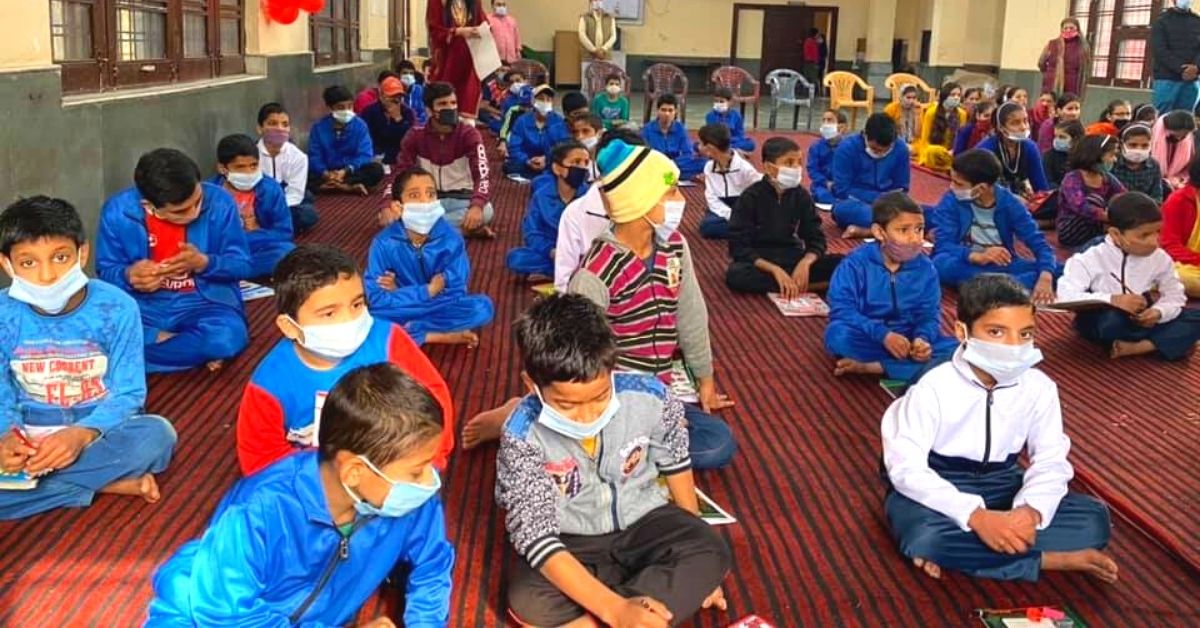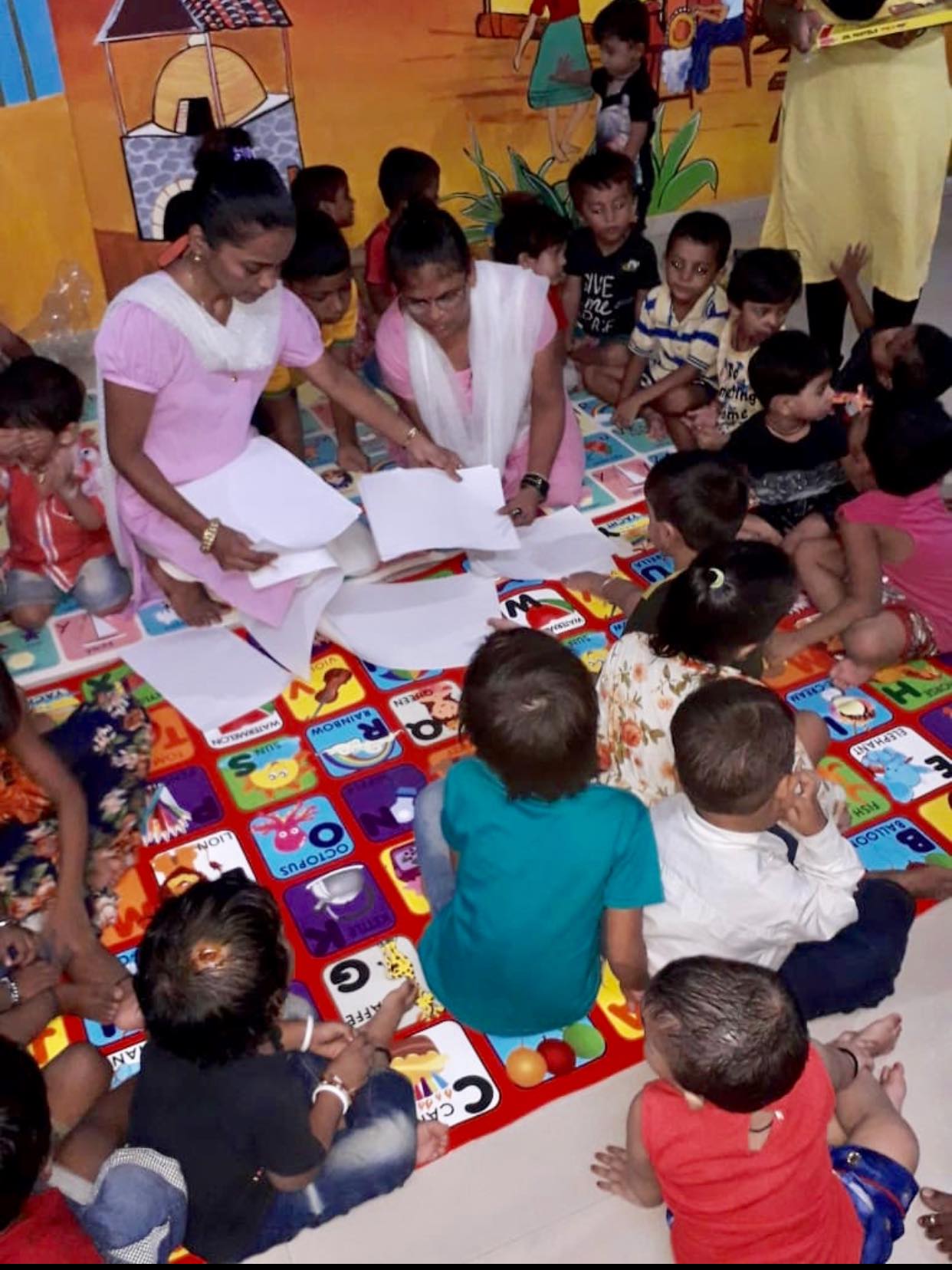Till a few weeks ago, the sheer worry of both his parents being quarantined after testing positive for COVID-19 had led Ramesh (name changed) to want to take his own life. Their small kholi (one-room house) in Mumbai did not have enough space for both parents to isolate, so they moved to a makeshift house nearby to keep their 13-year-old son safe.
A few days later, when Ramesh didn’t hear from them, he assumed they were dead. The words of their neighbours, as well as the news, had worsened his paranoia and helplessness. He saw no future without his parents, and decided to take the drastic step.
Ramesh is not an isolated case. Children like him, whose parents (one or both) have tested positive for coronavirus, are having to bear the brunt of alienation, neglect, and sometimes even abuse. The situation is worse if one parent is very critical, or ends up succumbing to the deadly virus.
To deal with this, Mumbai-based Rouble Nagi Art Foundation (RNAF) has converted their balwadis, or daycares, into covid-care centres to help parents find a place to keep their uninfected children, free of cost. These centres are equipped with beds, ration, study material and more. Ramesh presently lives in the centre and the NGO helped him connect with his mother over call. She is on her way to recovery.

Rouble Nagi, founder of the organisation, speaks with The Better India about the functioning of such centres, and why children like Ramesh need immediate attention.
Bringing back normalcy
According to the Union Health Ministry’s analysis, 35% of the deaths occurred in the age group between 45 and 60 years; and 10% in the age group of 26-44 years. This means that children of these adults could be in their teens, or even younger.
The emotional and social well-being of these children is compromised considering they often indulge in excessive digital exposure and drawing worst-case scenarios in their heads as a coping mechanism.
For kids like Ramesh, who belong to less privileged families, finding access to an adequate isolation space and proper meals is another challenge, as their parents lose their wages to the illness. Meanwhile, their schools are shut, and in the absence of homeschooling or online classes, education is also disrupted.
In the larger scheme of things, these problems could lead to an insurmountable crisis.
Explaining the idea behind RNAF’s initiative, Rouble says, “A lack of interaction can make a child feel caged at home, and the lockdown-like restrictions limit their physical activity, which in turn may cause health problems such as weight gain or lack of fitness. Their only outlet is the online world, which can make the child more anxious. It becomes hard for them to deal with denial and grief in case one parent dies. By keeping kids here, we not only give them mental peace, nutritious food, and education, but also take the financial burden of healthcare off their parents in case a child is also affected.”

The service is currently operational in nine centres, including Delhi-NCR, Mumbai, Rajasthan, and Dehradun. At present, there are close to 250 children living in these centres.
Every child admitted to the centre has to test negative, and all the children in the centres are tested every ten days. Since the organisation has been working with slum children and running balwadis for ten years now, there is already trust and familiarity within the communities.
“Till now, we were accepting children who have attended balwadis or the parents know us because of our social welfare work. Regardless, we ensure we receive proper consent from the parents to take in the child for 14 days. We also provide an extension if parents need more time, or send back the kid if they recover soon. A thorough background check is conducted on their economic status, as we accept only children with no financial stability,” says Rouble.
Once the child comes to the centre, they have to follow a daily routine to bring back as much normalcy as possible.
Aarif Khan, a volunteer at the Mumbai facility, says, “After breakfast, we take classes from 9-2, where the kids study Science, Arithmetic, English, History etc, with breaks in between. After an hour of rest, we conduct games and story sessions in the evening. By 7.30, they eat their dinner and sleep early. At a time when the entire country is undergoing a crisis, this routine helps them believe that things are alright. The group activities keep them busy and help them bond.”

Although the routine is set, there are times when children break down and ask if their parents are dead, or about their future vis-a-vis coronavirus. The volunteers at the NGO try to maintain a balance between reality and giving false hopes.
“Children have seen the repercussions of the virus last year, so romanticising the situation never helps. We don’t disregard any of their questions, address each of them, and give news of people who recover. We ask them what they would like to do once the pandemic goes away, so that they know there is a bright future awaiting them,” says Rouble.
The mental health of children who are forced to stay away from their parents is precarious, but addressing it patiently and carefully can help. Rouble hopes to scale the centres soon due to the high number of cases. In fact, in Noida, a generous donor has offered a building space to open a new centre.
If you know anyone who can avail of the accommodation cum learning centre service of RNAF, you can reach out to them here.
Edited by Divya Sethu
No comments:
Post a Comment